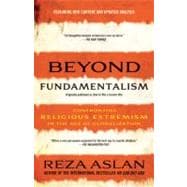
Note: Supplemental materials are not guaranteed with Rental or Used book purchases.
Purchase Benefits
What is included with this book?
| Introduction Us Versus Them | p. 3 |
| The Geography of Identity | |
| The Borderless Self | p. 15 |
| A Land Twice Promised | p. 34 |
| God is a Man of War | |
| Zeal for Your House Consumes Me | p. 61 |
| An Army of Believers | p. 78 |
| The Near and the Far | p. 101 |
| The End of the War as we Know it | |
| Generation E | p. 129 |
| The Middle Ground | p. 161 |
| Acknowledgments | p. 177 |
| Glossary | p. 179 |
| Notes | p. 183 |
| Select Bibliography | p. 209 |
| Index | p. 213 |
| Table of Contents provided by Ingram. All Rights Reserved. |
The New copy of this book will include any supplemental materials advertised. Please check the title of the book to determine if it should include any access cards, study guides, lab manuals, CDs, etc.
The Used, Rental and eBook copies of this book are not guaranteed to include any supplemental materials. Typically, only the book itself is included. This is true even if the title states it includes any access cards, study guides, lab manuals, CDs, etc.
Excerpted from How to Win a Cosmic War: Confronting Religious Fundamentalism by Reza Aslan
All rights reserved by the original copyright owners. Excerpts are provided for display purposes only and may not be reproduced, reprinted or distributed without the written permission of the publisher.